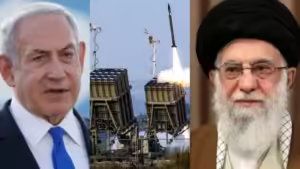

On October 1, 2024, Iran launched a significant missile attack on Israel, marking a severe escalation in the ongoing tensions between the two nations. This attack involved the launch of approximately 180 ballistic missiles targeting various locations within Israel.
The Attack
The missile barrage began in the early hours of the morning, with missiles striking several key locations, including Tel Aviv and other major cities. The Israeli Defense Forces (IDF) reported that many of the missiles were intercepted by their Iron Dome defense system, but some managed to hit their targets, causing significant damage.
Immediate Impact
The immediate aftermath of the attack saw widespread panic and chaos. Emergency services were quickly mobilized to deal with the casualties and damage. Initial reports indicated that there were injuries, but no confirmed fatalities at the time.
International Reactions
The international community reacted swiftly to the news of the attack. The United States condemned the missile strikes and expressed support for Israel’s right to defend itself. Other nations, including members of the European Union, also called for restraint and urged both sides to de-escalate the situation.
Iran’s Justification
Iran’s Supreme Leader, Ayatollah Ali Khamenei, defended the missile attack in a rare public speech. He described the attack as a “minimum punishment” for Israel’s actions and emphasized that Iran would continue to support the Palestinian cause. Khamenei’s speech was met with loud chants of support from the gathered crowd.
Israel’s Response
In response to the missile attack, Israel launched a series of retaliatory airstrikes targeting Iranian military installations in Syria and Lebanon. These strikes aimed to cripple Iran’s ability to launch further attacks and to send a clear message of deterrence.
Broader Implications
The missile attack and subsequent retaliatory strikes have raised concerns about the potential for a broader regional conflict. Analysts warn that the situation could escalate further if both sides do not exercise restraint. The involvement of other regional players, such as Hezbollah in Lebanon, adds another layer of complexity to the already volatile situation.
Humanitarian Concerns
The ongoing conflict has also led to significant humanitarian concerns. Civilians in both Israel and the affected regions in Syria and Lebanon are facing the brunt of the violence. International organizations have called for immediate humanitarian aid to be provided to those affected by the conflict.
Conclusion
The recent missile attack by Iran on Israel marks a dangerous escalation in the long-standing conflict between the two nations. The international community must work together to de-escalate the situation and prevent further violence. The focus should be on diplomatic solutions and addressing the underlying issues that have fueled this conflict for decades.
